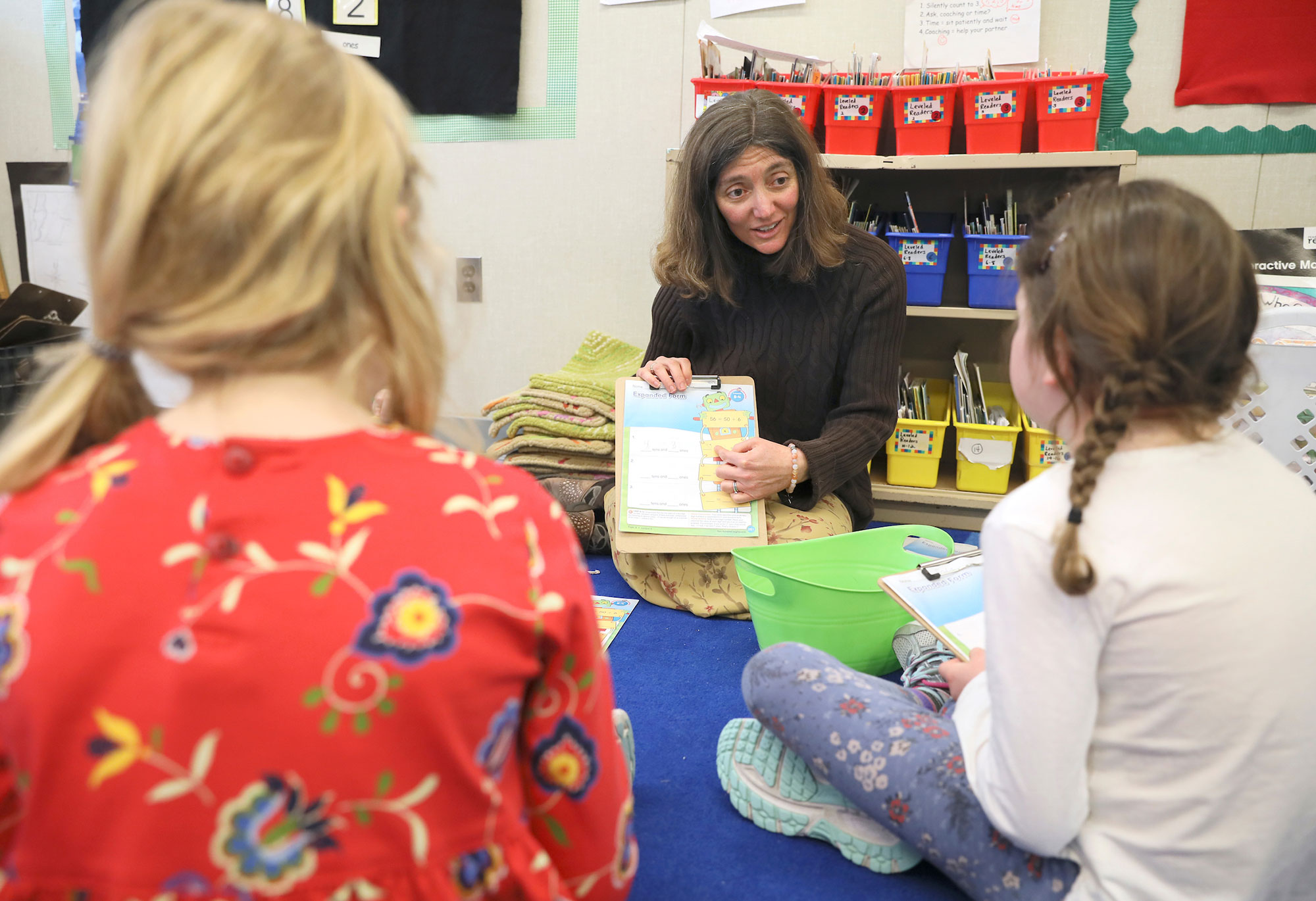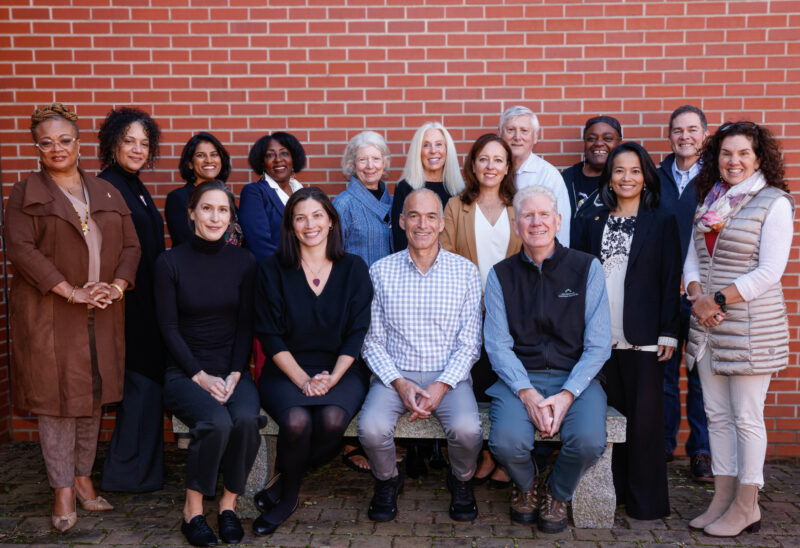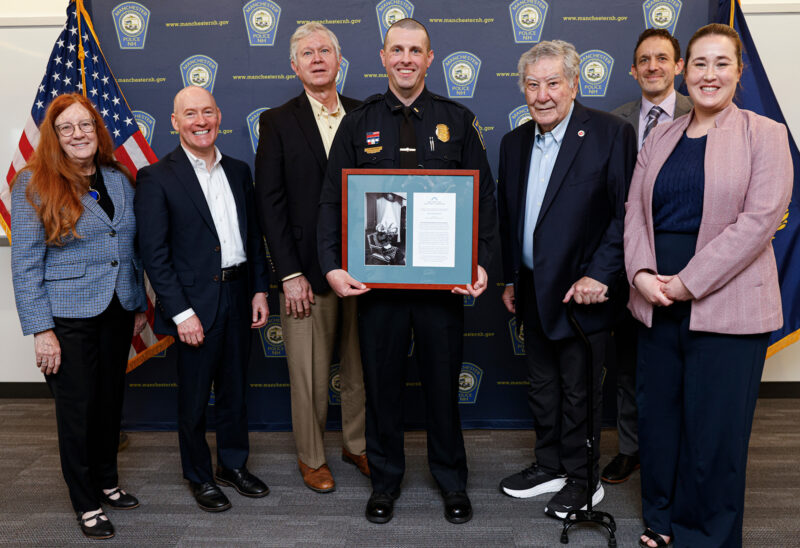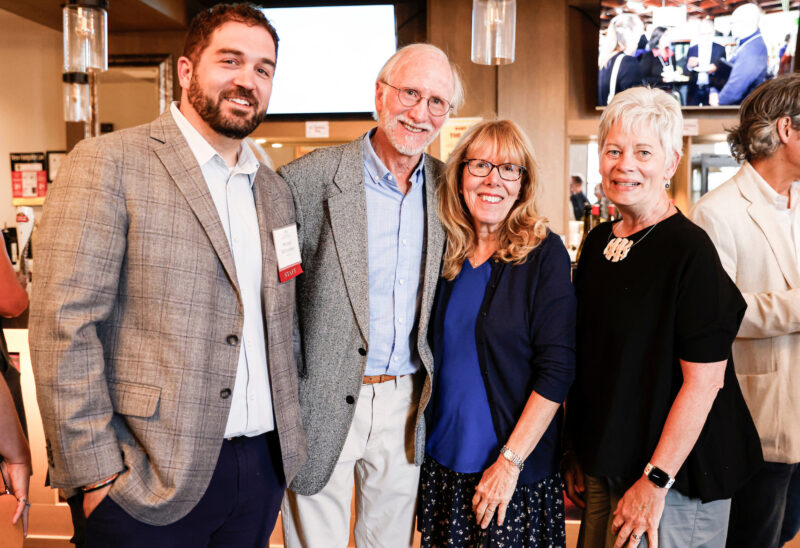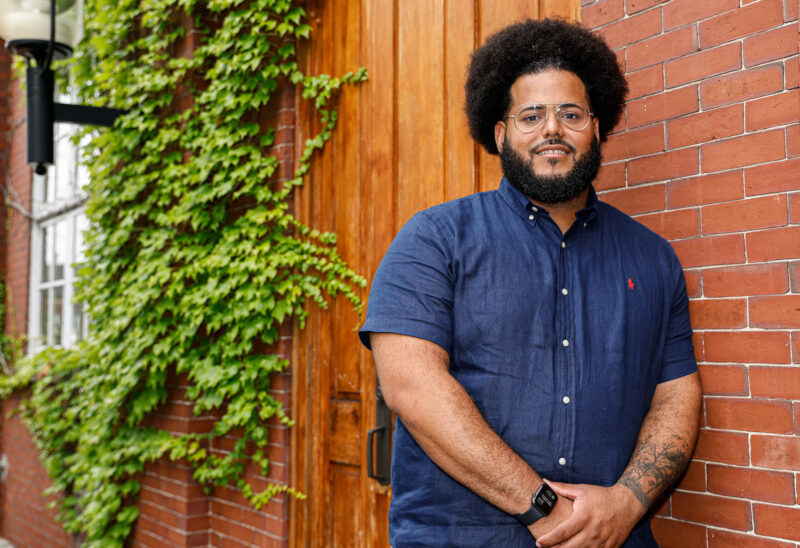Kearsarge Regional Elementary School teacher Kristin Lizotte wants to make the traditional three R’s more meaningful to young students by exposing their teachers to three C’s — creating, collaborating and connecting.
Lizotte, who has taught first and second grade for 26 years, was awarded the 2019 Christa McAuliffe Sabbatical from the New Hampshire Charitable Foundation. The sabbatical, created in 1986 in honor of the Concord High School teacher and astronaut, gives an exemplary New Hampshire teacher a year off with pay and a materials budget to bring a great educational idea to fruition.
Lizotte’s goal is to create opportunities for children to learn important skills by having them participate in hands-on projects that combine subjects like reading, writing, math, science and social studies. She hopes to do that by collaborating with teachers, then connecting them with colleagues around the state to support each other and bring the concept into their classrooms.
“We tend to do math at one time and language arts at another time,” Lizotte said. “The sabbatical will give me time to learn more about integrating subjects and work with teachers in a learning community model where I can come in and help with professional development. Having the time will be a real gift.”
At the end of her year out of the classroom, Lizotte hopes teachers will have more options, based on research and their own needs, to employ with their students.
And she hopes there will be more focus on having children learn by participating in projects, collaborating, problem-solving and learning through experiences (experiential learning) that will reach beyond textbooks.
“New Hampshire teachers have created an incredible array of projects and curricula through this sabbatical that have touched the lives of thousands of students,” said Richard Ober, president and CEO of the New Hampshire Charitable Foundation. “Their work becomes part of Christa McAuliffe’s enduring legacy for the state.”
Lizotte’s education doctoral program research and classroom experience have shown her that when teachers combine traditional curriculum programs with experiential learning, children become more engaged, active participants.
What might project-based, experiential learning mean for elementary school kids?
Lizotte gestures out her classroom window, illustrating how opportunities for experiential learning present themselves everywhere.
For example, her first-graders learn about plants, so she may pose this problem: Many children love to play in bushes around the school. It’s fun for the kids, but it’s killing the bushes. Does this matter?
Instead of merely telling the children to stay away, Lizotte ponders a project including research about whether trees and bushes are important and how to keep them healthy. Maybe a local landscaper or farmer could speak to the class. The children might conclude the bushes and trees are important and that there should be more of them. That could lead to lessons in math to consider finances and additional planting space. It also could lead to the class writing a message to their schoolmates about why they shouldn’t trample the bushes.
It’s just one quick example of how teachers might incorporate the “three R’s” — reading, writing and arithmetic (with a dose of science) — into a project-based, experiential activity.
“It’s meaningful to them. It’s real. It’s a problem where they need to use skills from different subjects,” Lizotte said, “And they see how what they are learning connects to the real world.”
That’s why she is so passionate about having teachers help children learn through hands-on experience with ideas, materials and each other.
Seated on a tiny chair in her first-grade classroom, Lizotte said she plans to establish professional learning communities of teachers at schools throughout New Hampshire to create project-based/experiential learning opportunities; provide training, resources and support; and develop a statewide website to share lesson plans, link to resources and share experiences in a discussion forum.
As first steps, Lizotte envisions expanding her already-extensive research on experiential learning by visiting and learning from teachers who are using the approach and working with teachers who want to incorporate it in their classrooms by establishing the learning communities in which teachers will determine the agenda.
“This will be ‘What do you want to learn?’” she said. “I’m hoping to identify those needs, then create materials. The teachers will learn together, plan together, monitor student progress together and respond to students in the community.
“I’m hoping to be the link that connects all of those pieces.”
Lizotte’s doctoral program also has focused on giving teachers the knowledge and skills to be change agents in their profession. It’s a challenge she plans to implement through the McAuliffe award.
“The sabbatical is such an amazing show of respect for my profession because they are saying ‘What you have to say is so important that we are going to give you this year to go do it,’” she said.
The Christa McAuliffe Sabbatical program has been administered by the New Hampshire Charitable Foundation since 1990 with oversight from a steering committee that includes representatives from the governor’s office and the state Board of Education, the New Hampshire Senate president, the New Hampshire House speaker, the presidents of the National Education Association and American Federation of Teachers and a McAuliffe family member.
About the New Hampshire Charitable Foundation
The New Hampshire Charitable Foundation is New Hampshire’s statewide community foundation, founded in 1962 by and for the people of New Hampshire. The Foundation manages a growing collection of 2,000 funds created by generous individuals, families and businesses, and awards more than $40 million in grants and scholarships every year. The Foundation works with generous and visionary citizens to maximize the power of their giving, supports great work happening in our communities and leads and collaborates on high-impact initiatives. For more information, please visit www.nhcf.org or call 603-225-6641.

